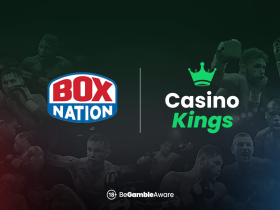The online gambling industry has grown significantly in recent years, but with this expansion comes the need for improved security, transparency, and trust. Blockchain technology, known for its use in cryptocurrencies like Bitcoin, is now making its mark on the online gambling world, addressing these critical issues. This article explores how blockchain transforms the industry and what it means for operators and players.
Enhancing Transparency in Online Gambling
One of the most significant challenges in online gambling is ensuring that games are fair and that operators are trustworthy. Traditional online casinos require players to trust that the games are not rigged and that payouts are made accurately. However, this trust has been eroded over time due to instances of fraud and manipulation.
Blockchain technology offers a solution by providing a decentralized and immutable ledger where all transactions are recorded transparently. In a blockchain-based system, every bet, payout, and game outcome is recorded on the blockchain, which can be publicly verified. This means that players no longer need to trust the casino blindly; instead, they can verify the fairness of each game themselves.
Moreover, smart contracts—self-executing contracts with the terms of the agreement directly written into code—can automate and enforce the rules of the game, ensuring that payouts are made instantly and without the need for human intervention. This level of transparency is unprecedented in the online gambling industry and could significantly boost player confidence.
Improving Security with Blockchain
Security is another critical concern in online gambling. Traditional casinos often store sensitive player data, including personal and financial information, in centralized databases. These databases are prime targets for hackers, and data breaches can lead to severe consequences for players, including identity theft and financial loss.
Blockchain technology addresses this issue by decentralizing data storage. Instead of storing player information in a single, vulnerable location, blockchain distributes the data across a network of nodes. Each node holds a copy of the entire blockchain, making it nearly impossible for hackers to alter or compromise the data. Even if one node is breached, the rest of the network remains secure, ensuring that player information is protected.
Additionally, blockchain technology allows for anonymous transactions, further enhancing player privacy. Players can gamble without revealing their personal information, reducing the risk of identity theft and other forms of fraud. This anonymity, combined with the enhanced security of blockchain, offers a safer and more secure online gambling experience.
The Role of Cryptocurrencies in Online Gambling
Blockchain and cryptocurrencies are closely linked, and the rise of cryptocurrencies has had a significant impact on online gambling. Many casinos now accept cryptocurrencies as a form of payment, offering players a fast, secure, and anonymous way to deposit and withdraw funds. Transactions with cryptocurrencies are processed almost instantly, without the need for intermediaries like banks, which can slow down the process and add extra fees.
Moreover, using cryptocurrencies allows players to bypass restrictions and regulations that may apply to traditional currencies. In countries where online gambling is heavily regulated or even illegal, players can use cryptocurrencies to gamble anonymously, without fear of legal repercussions. This has opened up new opportunities for players in regions where online gambling was previously inaccessible.
Future Prospects of Blockchain in Online Gambling
The integration of blockchain technology in online gambling is still in its early stages, but the potential is enormous. As more Casino platforms adopt blockchain, we can expect to see a shift towards a more transparent, secure, and decentralized gambling environment. This transformation could lead to greater trust between players and operators, ultimately driving the growth of the industry.
However, challenges remain, including regulatory hurdles and the need for widespread adoption of blockchain technology. Governments and regulatory bodies are still grappling with how to handle blockchain and cryptocurrencies, and until clear regulations are in place, some operators may be hesitant to fully embrace the technology.
Despite these challenges, the future of blockchain in online gambling looks promising. As the technology continues to evolve and mature, it has the potential to revolutionize the industry, making online gambling safer, fairer, and more accessible for players worldwide.








Leave a Reply